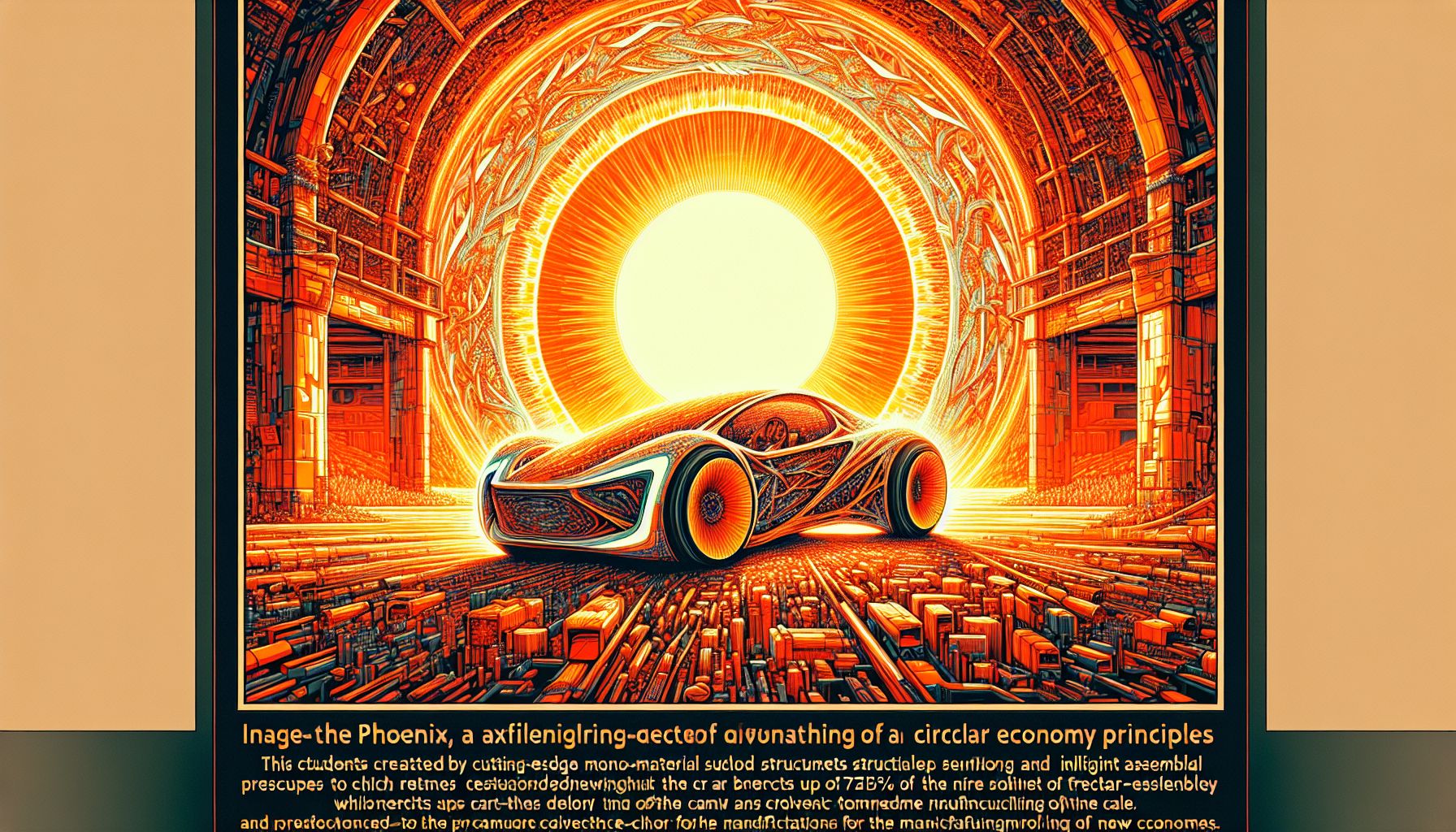TU Eindhoven's Phoenix: Revolutionizing Automotive Recycling

Eindhoven, Monday, 14 October 2024.
Students from TU Eindhoven have developed Phoenix, an electric car that can be 75% recycled into new vehicles, quadrupling current industry standards. Using innovative mono-material structures and smart assembly, Phoenix sets a new benchmark for sustainable automotive design and circular economy principles.
Championing Sustainability with Phoenix
The Phoenix, a brainchild of the student team TU/ecomotive at Eindhoven University of Technology (TU Eindhoven), is not just an advancement in vehicle design but a leap towards a sustainable future. This remarkable vehicle is built with the intention of being recyclable up to 75% in subsequent generations of vehicles, sharply contrasting the existing closed-loop recycling rate of just 21% in Europe[1]. The focus on mono-material structures means that components are made from a singular type of material, simplifying the recycling process and reducing material degradation during reuse.
Revolutionizing Recycling Standards
Central to Phoenix’s design is its layered construction and smart fastening methods, which allow materials to be easily separated and recycled without mixing with other substances. This approach not only preserves the quality of materials but also significantly enhances recycling efficiency. Auto Recycling Nederland (ARN) notes that while 88% of a car’s materials are reused, much of this is through downcycling, resulting in products of inferior quality[2]. Phoenix aims to change this narrative by leveraging closed-loop recycling, where materials retain their original quality and are reused in similar applications, setting a new standard for the automotive sector.
Innovative Battery Solutions
Beyond its sustainable material usage, Phoenix also boasts an innovative battery system designed to extend vehicle range and usability. It includes both fixed and removable batteries, with the latter enhancing the driving range by over 60% for long-distance travel. When not in use for driving, these removable batteries can power household devices, thereby prolonging their lifespan and efficiency[3]. This dual-purpose use of batteries exemplifies the car’s commitment to sustainability and resourcefulness.
A Call for Industry-Wide Change
As Europe faces new regulatory demands requiring vehicles to contain a minimum of 6.25% closed-loop recycled materials, innovations like Phoenix are more critical than ever[4]. Tim van Grinsven, team manager of TU/ecomotive, stresses the importance of such advancements, highlighting the finite nature of Earth’s resources and advocating for more efficient material use[5]. Phoenix not only meets these regulatory challenges but also sets a precedent for future automotive designs, pushing the boundaries of what is possible in sustainable vehicle manufacturing.

